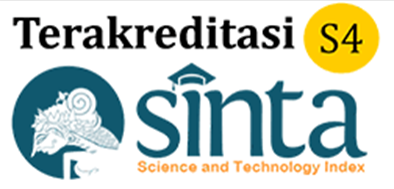Pembangunan Sosial di Wilayah Pesisirsebagai Komitmen Pencegahan Human Trafficking
Abstract
The purpose of this research is to examine how sustainable social development can be an effective commitment to the prevention of human trafficking in coastal areas because coastal areas, with their unique demographic and economic conditions, face major challenges in addressing human exploitation, whether in forced labor, child trafficking or sexual exploitation. This qualitative research uses a literature review method that analyzes various journals, research reports, and related policies. The analysis was conducted by categorizing the findings based on key themes, such as causal factors of human trafficking, social development policies, and intervention strategies. This research emphasizes that planned and comprehensive social development can reduce the potential for human trafficking in coastal areas. Through improved economic welfare, better access to education, and improved social and economic infrastructure. Therefore, a strong commitment is needed from the government, community organizations, and local communities to implement sustainable social development strategies to create safer and more prosperous coastal areas.
References
Ahmad, W. (2022). Dimensi Sosial dalam Pengembangan Masyarakat di Wilayah Pesisir. 6(2), 4986–4994.
Azfirmawarman, D. (2023). Indeks Pembangunan Manusia Di Indonesia. Jurnal Pendidikan Dan Konseling (Jpdk), 5(5), 117–125. https://doi.org/10.31004/jpdk.v5i5.22864
Chauke, R., Motlalekgosi, P., & Mofokeng, J. T. (2022). Exploring Police Methods and Challenges of Identifying Human Trafficking Activities in the City of Tshwane Metropolitan Municipality, South Africa. International Journal of Research in Business and Social Science (2147-4478), 11(9),250–264. https://doi.org/10.20525/ijrbs.v11i9.2203
Deb, H., & Sanyal, T. (2017). Human Trafficking: An Overview with Special Emphasis on India and West Bengal. IOSR Journal Of Humanities And Social Science (IOSR-JHSS, 22(9), 76–97. https://doi.org/10.9790/0837-2209057697
Destriapani, E., Sarwoprasodjo, S., & Sulisworo, D. (2021). Pemanfaatan Website Desa Untuk Pembangunan: Perspektif Actor-Network Theory. Sodality Jurnal Sosiologi Pedesaan, 9(3). https://doi.org/10.22500/9202137657
Erlinda, N. (2016). Kebijakan Pembangunan Wilayah Berkelanjutan Di Provinsi Jambi Melalui Pendekatan Model Flag. Jurnal Ekonomi Dan Kebijakan Publik, 7(1), 1. https://doi.org/10.22212/jekp.v7i1.416
Gębska, M. (2020). Human Trafficking as a Challenge for International Security and Security in Europe. Torun International Studies, 1(13), 41. https://doi.org/10.12775/tis.2020.004
Hasan, H. (2022). Green Human Resources Management Untuk Keberlanjutan Perusahaan Pada Industri Penerbangan. Jurnal Transportasi Logistik Dan Aviasi, 2(1), 10–16. https://doi.org/10.52909/jtla.v2i1.91
Imam Gunawan, S. P. M. P. (2022). Metode Penelitian Kualitatif: Teori dan Praktik. Bumi Aksara. https://books.google.co.id/books?id=AqSAEAAAQBAJ
Khotimah, K., & Mariana, M. (2023). Membangun Keunggulan Ekonomi Lokal melalui Pemberdayaan Kelompok Wanita Tani di Desa Pulosari Kecamatan Jambon: Building Local Economic Excellence …. … Journal of Community Research and …. https://edujavare.com/index.php/Assoeltan/article/view/235
Kiros, G., & Zeru, M. (2022). A Human Security Perspective to Human Trafficking From Ethiopia to Saudi Arabia: The Case of Atsbi Wenberta Woreda in Tigray Region. Migration and Development, 11(3), 560–579. https://doi.org/10.1080/21632324.2020.1806600
Masiku, Y., Rochaida, E., & Wijaya, A. (2017). Pengaruh Investasi Pertambangan Dan Tenaga Kerja Terhadap Produk Domestik Regional Bruto Serta Indeks Pembangunan Manusia Di Kabupaten Kutai Barat. Forum Ekonomi, 19(1),92. https://doi.org/10.29264/jfor.v19i1.2116
Misbach, A., Widodo, P., & Saragih, H. J. R. (2022). The Role of Indonesia Customs in the Eradication of Iuu Fishing. Customs Research and Applications Journal, 3(2), 35–54.https://doi.org/10.31092/craj.v3i2.112
Muliza, M., Zulham, T., & Seftarita, C. (2017). Analisis Pengaruh Belanja Pendidikan, Belanja Kesehatan, Tingkat Kemiskinan Dan PDRB Terhadap Ipm Di Provinsi Aceh. Jurnal Perspektif Ekonomi Darussalam, 3(1), 51–69. https://doi.org/10.24815/jped.v3i1.6993
Nasution, M. (2022). Potensi Dan Tantangan Blue Economy Dalam Mendukung Pertumbuhan Ekonomi Di Indonesia: Kajian Literatur. J. Budg., 7(2). https://doi.org/10.22212/jbudget.v7i2.136
Puspaningtyas, A. (2021). Peningkatan Kapasitas Sumber Daya Manusia Melalui Pembangunan Inklusif Dalam Mendukung Desa Wisata Budaya Di Desa Plunturan. Jurnal Ilmiah Tata Sejuta Stia Mataram, 7(2), 265–282. https://doi.org/10.32666/tatasejuta.v7i2.216
Rahardjo, A. (2013). Theories of Economic Development, Economic Growth and Regional Growth. Science Graha.
Roshaunda, D., Diana, L., Caroline, L. P., Khalisha, S., & Nugraha, R. S. (2019). Penilaian Kriteria Green Building Pada Bangunan Gedung Universitas Pembangunan Jaya Berdasarkan Indikasi Green Building Council Indonesia. Widyakala Journal of Pembangunan Jaya University, 6, 29. https://doi.org/10.36262/widyakala.v6i0.181
Saimima, I. D. S., Tobing, C. I., & Sanaky, M. S. R. (2022). Human Trafficking on Illegal, Unreported and Unregulated Fishing Cases as Transnational Crime on Indonesia Coastal Boundary. JLPH, 2(2), 51–65. https://doi.org/10.38035/jlph.v2i2.74
Soendari, T. (2012). Metode Penelitian Deskriptif. UPI. Stuss, Magdalena & Herdan, Agnieszka.
Stanescu, N., Dan, A.-N., & Tasențe, T. (2023). Human Trafficking - The Boomerang of a Decadent Society (Social Perception of Human Trafficking in Dobrogea / Constanța). Technium Social Sciences Journal, 44, 985–1001. https://doi.org/10.47577/tssj.v44i1.9036
Suharto, E. (2011). Kebijakan Sosial Sebagai Kebijakan Publik. Alfabeta. Wiguna, M. (2023). Implementasi Green Accounting Dan Women on Board Dalam Pembangunan Berkelanjutan. Jurnal Akuntansi Keuangan Dan Bisnis, 15(2), 626–635. https://doi.org/10.35143/jakb.v15i2.5716
Zakaria, F. A., Widijatmoko, E. K., Ladamay, I., & Petu, V. K. (2020). Keterlibatan Warga Negara Dalam Pembangunan Berkelanjutan Melalui Program Desmigratif. Jurnal Civic Education Media Kajian Pancasila Dan Kewarganegaraan, 4(1). https://doi.org/10.36412/ce.v4i1.1872
Copyright (c) 2025 Jurnal Manajemen dan Ilmu Administrasi Publik (JMIAP)

This work is licensed under a Creative Commons Attribution 4.0 International License.












